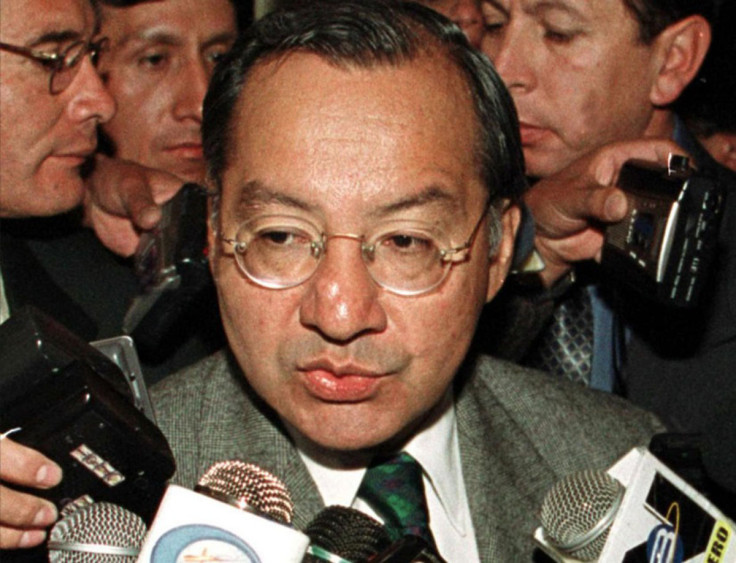
A federal judge convened a hearing to determine whether Victor Manuel Rocha, a former American ambassador convicted of acting as a covert agent for Cuba, should be required to pay restitution to any victims of his actions.
Federal prosecutors argue that Rocha, who was sentenced in April to 15 years in prison and fined $500,000, is not obligated to pay restitution, saying the only victim is the U.S. government.
Prosecutors note that no victims have come forward with concrete evidence of harm caused by Rocha's actions during his decades-long engagement with the Cuban government.
In the memo, prosecutors Jonathan Stratton and John Shipley stated, "We respect the court's desire to ensure that any potential victims of the defendant's criminal conduct be afforded their rights under the law to receive restitution. It remains the case, however, that there are no other victims entitled to restitution."
Rocha, who became the U.S. ambassador to Bolivia in 2000, was arrested in December following an FBI sting operation. According to the criminal affidavit, Rocha admitted to working for Cuban intelligence for four decades, with his last contact around 2017.
A series of recorded meetings from 2022 and 2023 show Rocha describing the U.S. as "the enemy" and saying his greatest goal when working for the State Department for almost 40 years was "strengthening the Cuban revolution."
During his sentencing in April, Judge Beth Bloom labeled Rocha "an enemy of the United States government," condemning his actions as a direct assault on U.S. democracy and citizen safety. Rocha, expressing remorse, attributed his betrayal to the radical politics of his youth.
Rocha's plea agreement involved cooperating with U.S. investigations on Cuba, including a Justice Department assessment of the damage caused by his espionage. Judge Bloom, dissatisfied with the initial plea deal, questioned why prosecutors did not seek forfeiture of Rocha's properties or restitution for his victims. Rocha had transferred ownership of four luxury condos and his bank accounts to his wife after his indictment.
While Rocha was not formally accused of espionage, which requires more stringent evidence, he was charged with violating the Foreign Agents Registration Act. Despite this, federal officials, including U.S. Attorney General Merrick Garland, have denounced Rocha's activities as one of the most severe and prolonged infiltrations of the U.S. government by a foreign agent.
© 2025 Latin Times. All rights reserved. Do not reproduce without permission.





